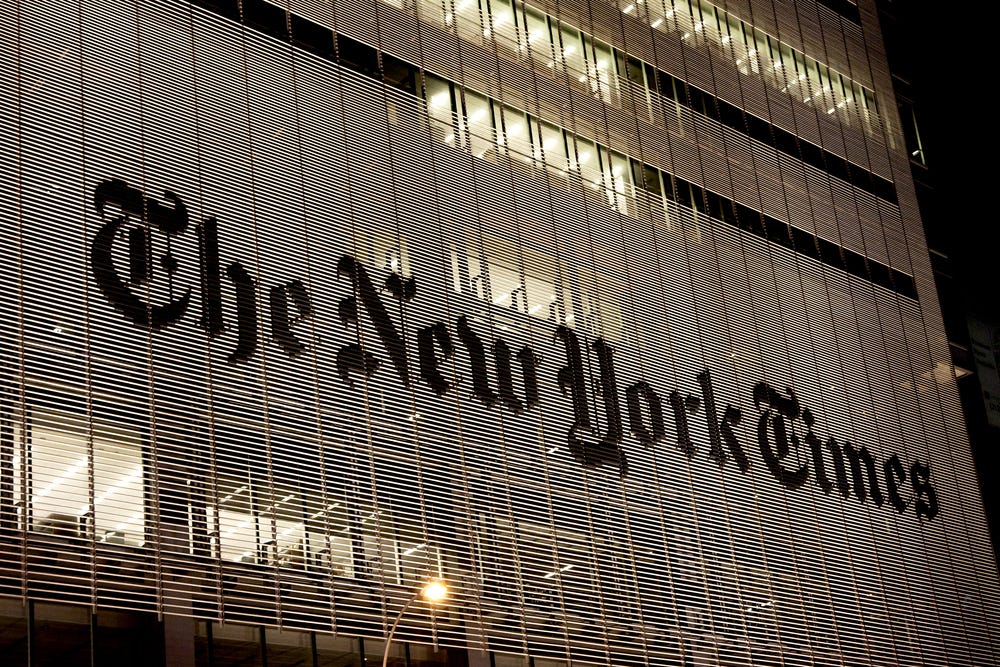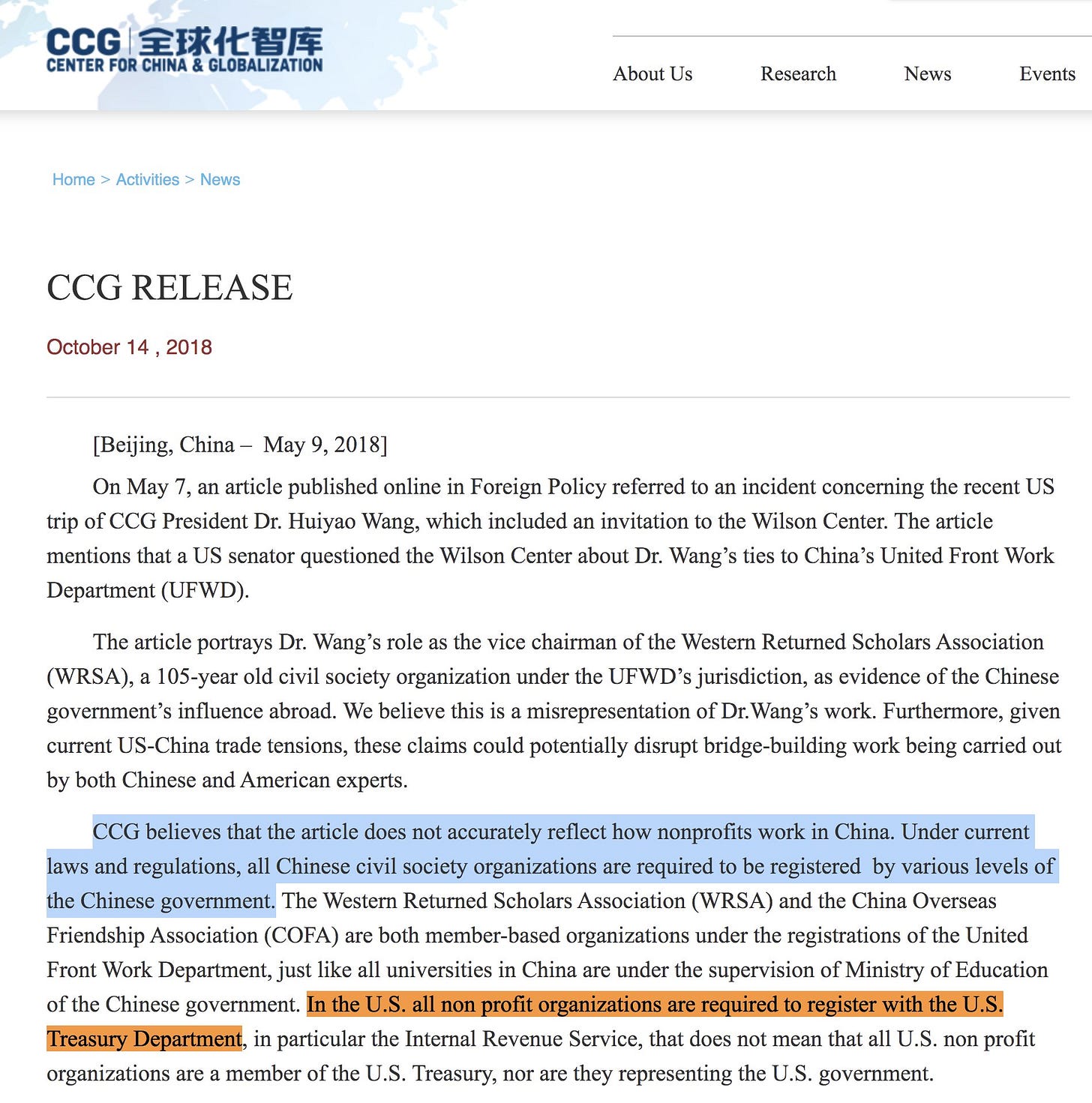The New York Times Fails to Fully Disclose Opinion Writer's Chinese Government Ties
Even the stealth edit falls short.
The New York Times opinion section prides itself on presenting a “robust, wide-ranging and distinctive collection of arguments and ideas” in its pages. But in doing so, it owes its readers the duty to enforce its own guidelines, which state that guest writers should “take care to avoid any conflict of interest, or the appearance of such conflict[.]” While part of the responsibility rests with the writers, the Times itself must be certain disclosure is full and clear.
This Sunday, the Times published an essay entitled “It’s Time to Offer Russia an Offramp. China Can Help With That.” by Wang Huiyao. Both Craig Singleton of the Foundation for Defense of Democracies and the Washington Free Beacon called attention to the insufficient way the Times identified the author.
Wang was originally identified in the short bio accompanying the essay as the “founder and president of the Center for China and Globalization, a nongovernmental think tank based in Beijing.”
Subsequently the Times updated the bio with another revelation: “He advises the Chinese government in that capacity.”
However, the Times neglected to disclose that this bit of information had not been included originally. This is called a “stealth edit.”
Not only that, the response of Wang’s organization (Center for China and Globalization, or CCG) in 2018 to a Foreign Policy magazine story reveals more about the CCG’s relationship to the Chinese government than perhaps it intended, as I first pointed out in a tweet Monday:
The idea that an organization “required to be registered” with the propaganda arm (the United Front Work Department) of a communist government controlled by a single party, the CCP, is comparable to IRS non-profit reporting requirements in the United States is risible. The New York Times has been around the block long enough to know better.
That the Times didn’t inform their readers of this glaring connection to the CCP is embarrassing and shows an unbecoming deference to China’s authoritarian system.










